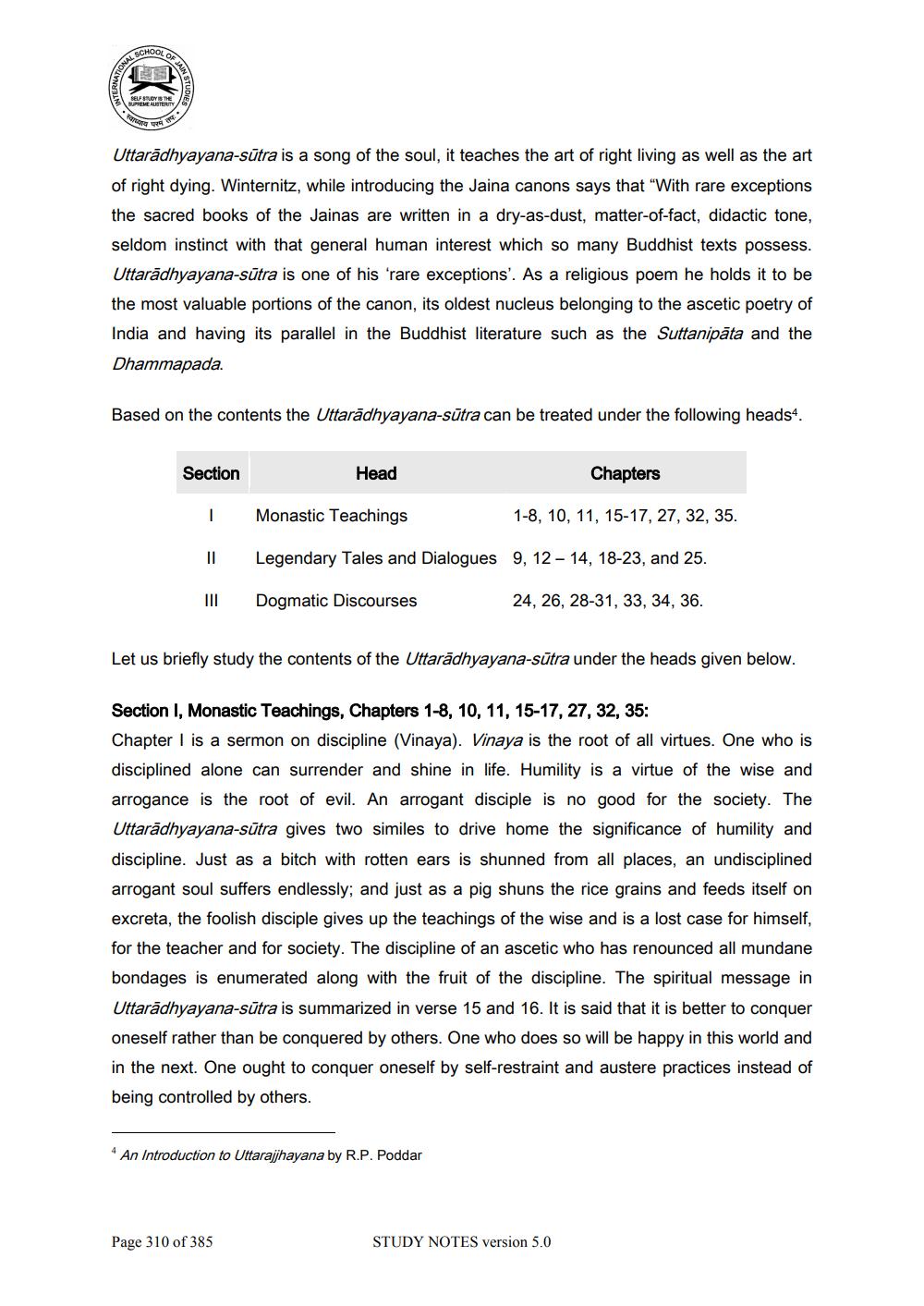________________
INTERNATION
SCHOOL
OF
SELF STUDY IS THE
SUPREME AUSTERITY
स्वाध्याय परम
STUDIES
Uttaradhyayana-sūtra is a song of the soul, it teaches the art of right living as well as the art of right dying. Winternitz, while introducing the Jaina canons says that "With rare exceptions the sacred books of the Jainas are written in a dry-as-dust, matter-of-fact, didactic tone, seldom instinct with that general human interest which so many Buddhist texts possess. Uttaradhyayana-sūtra is one of his 'rare exceptions'. As a religious poem he holds it to be the most valuable portions of the canon, its oldest nucleus belonging to the ascetic poetry of India and having its parallel in the Buddhist literature such as the Suttanipata and the Dhammapada.
Based on the contents the Uttaradhyayana-sutra can be treated under the following heads4.
Section
I
||
III
Head
Monastic Teachings
Legendary Tales and Dialogues 9, 12-14, 18-23, and 25.
Dogmatic Discourses
24, 26, 28-31, 33, 34, 36.
Chapters
1-8, 10, 11, 15-17, 27, 32, 35.
Let us briefly study the contents of the Uttaradhyayana-sūtra under the heads given below.
Section I, Monastic Teachings, Chapters 1-8, 10, 11, 15-17, 27, 32, 35:
Chapter I is a sermon on discipline (Vinaya). Vinaya is the root of all virtues. One who is disciplined alone can surrender and shine in life. Humility is a virtue of the wise and arrogance is the root of evil. An arrogant disciple is no good for the society. The Uttaradhyayana-sutra gives two similes to drive home the significance of humility and discipline. Just as a bitch with rotten ears is shunned from all places, an undisciplined arrogant soul suffers endlessly; and just as a pig shuns the rice grains and feeds itself on excreta, the foolish disciple gives up the teachings of the wise and is a lost case for himself, for the teacher and for society. The discipline of an ascetic who has renounced all mundane bondages is enumerated along with the fruit of the discipline. The spiritual message in Uttaradhyayana-sūtra is summarized in verse 15 and 16. It is said that it is better to conquer oneself rather than be conquered by others. One who does so will be happy in this world and in the next. One ought to conquer oneself by self-restraint and austere practices instead of being controlled by others.
An Introduction to Uttarajjhayana by R.P. Poddar
Page 310 of 385
STUDY NOTES version 5.0




